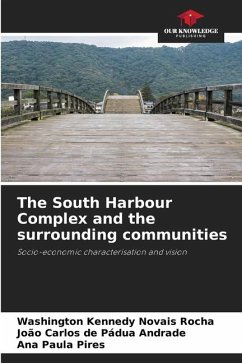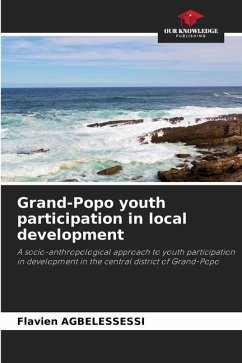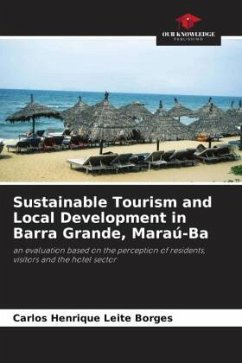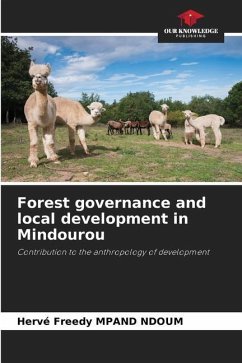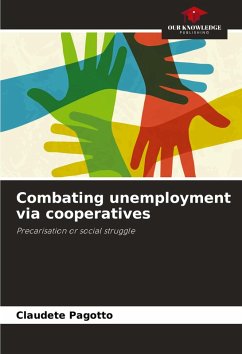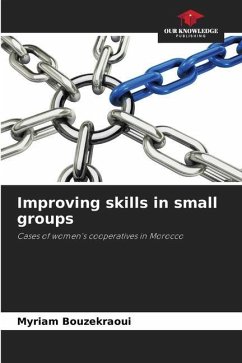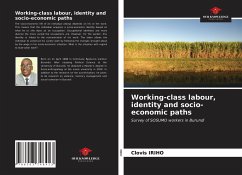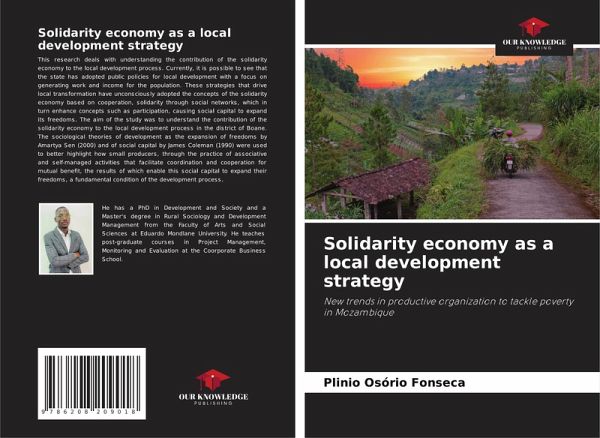
Solidarity economy as a local development strategy
New trends in productive organization to tackle poverty in Mozambique
Versandkostenfrei!
Versandfertig in 6-10 Tagen
40,99 €
inkl. MwSt.

PAYBACK Punkte
20 °P sammeln!
This research deals with understanding the contribution of the solidarity economy to the local development process. Currently, it is possible to see that the state has adopted public policies for local development with a focus on generating work and income for the population. These strategies that drive local transformation have unconsciously adopted the concepts of the solidarity economy based on cooperation, solidarity through social networks, which in turn enhance concepts such as participation, causing social capital to expand its freedoms. The aim of the study was to understand the contri...
This research deals with understanding the contribution of the solidarity economy to the local development process. Currently, it is possible to see that the state has adopted public policies for local development with a focus on generating work and income for the population. These strategies that drive local transformation have unconsciously adopted the concepts of the solidarity economy based on cooperation, solidarity through social networks, which in turn enhance concepts such as participation, causing social capital to expand its freedoms. The aim of the study was to understand the contribution of the solidarity economy to the local development process in the district of Boane. The sociological theories of development as the expansion of freedoms by Amartya Sen (2000) and of social capital by James Coleman (1990) were used to better highlight how small producers, through the practice of associative and self-managed activities that facilitate coordination and cooperation for mutual benefit, the results of which enable this social capital to expand their freedoms, a fundamental condition of the development process.






